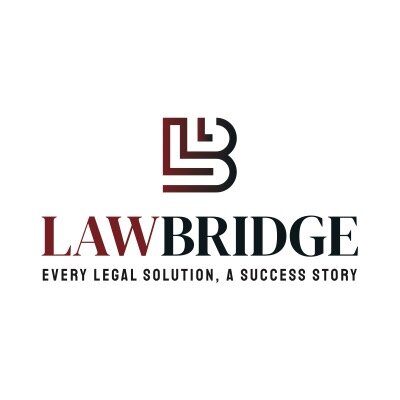Best Biotechnology Lawyers in United Arab Emirates
Share your needs with us, get contacted by law firms.
Free. Takes 2 min.
Or refine your search by selecting a city:
List of the best lawyers in United Arab Emirates

The Black Robe For Legal Consultancy & Debit Collection
1 hour Free ConsultationAbout Biotechnology Law in United Arab Emirates
Biotechnology in the United Arab Emirates (UAE) is a rapidly growing field, driven by advancements in research and development, as well as significant investments in science and technology. The UAE government has recognized the potential of biotechnology to contribute to the healthcare, agriculture, and environmental sectors, aligning with its vision for innovation and sustainable development. While there is a strong emphasis on fostering innovation, the legal landscape for biotechnology is equally important to ensure ethical practices, intellectual property protection, and regulatory compliance.
Why You May Need a Lawyer
In the field of biotechnology, legal expertise is indispensable for navigating the complex regulatory frameworks and protecting the interests of stakeholders involved. Common situations where legal advice may be necessary include:
- Securing patents for biotech inventions and protecting intellectual property rights.
- Ensuring compliance with local and international regulations governing clinical trials and research activities.
- Negotiating contracts and agreements for collaborations, licensing, and joint ventures.
- Handling disputes related to intellectual property infringement, regulatory compliance, or breach of contract.
- Guidance on obtaining approvals for the commercialization of biotech products.
Local Laws Overview
The legal framework for biotechnology in the UAE incorporates various laws and regulations that are designed to promote innovation while ensuring safety and ethical standards. Key aspects include:
- Intellectual Property: The UAE has stringent intellectual property laws that protect patents, trademarks, and copyrights, crucial for biotech innovations.
- Regulatory Compliance: Biotech companies must adhere to the guidelines set by regulatory bodies, such as the Ministry of Health and Prevention, which oversee clinical trials and the approval of new biotech products.
- Biosafety Standards: Regulations ensure that biotech practices do not pose risks to human health or the environment, aligning with international biosafety protocols.
- Ethical Considerations: Ethical guidelines govern practices related to genetic research, cloning, and other sensitive areas of biotechnology.
Frequently Asked Questions
What is the importance of intellectual property in biotechnology?
Intellectual property in biotechnology is crucial as it protects new inventions, ensuring that innovators can secure economic benefits from their creations and reinvest in further research and development.
How are biotechnology products regulated in the UAE?
Biotechnology products are regulated by multiple authorities, primarily the Ministry of Health and Prevention, which oversees the approval process, ensuring compliance with safety and efficacy standards.
What steps are involved in patenting a biotech invention in the UAE?
The patenting process involves conducting a thorough patent search, preparing a detailed patent application, and filing it with the UAE Patent Office, followed by an examination and approval process.
How can disputes in biotechnology collaborations be resolved?
Disputes can be managed through legal arbitration or litigation, with contracts often specifying preferred methods for dispute resolution to protect the interests of all parties involved.
Are there any specific ethical guidelines for genetic research in the UAE?
Yes, the UAE follows international ethical standards for genetic research, requiring informed consent, ethical review processes, and compliance with biosafety regulations to address moral and societal concerns.
What are the roles of government bodies in regulating biotechnology?
Government bodies such as the Ministry of Health and the Ministry of Climate Change and Environment are involved in regulating different aspects of biotechnology, from approving medical biotech products to ensuring environmental safety.
Can foreign biotech firms operate in the UAE?
Yes, foreign biotech firms can operate in the UAE, often through partnerships or by setting up branches in free zones, which offer benefits like 100% foreign ownership and tax exemptions.
What incentives are available for biotech startups in the UAE?
The UAE offers several incentives for biotech startups, including funding opportunities, incubators, accelerators, and research grants, fostering innovation and growth in the sector.
How does the UAE address the environmental impact of biotech activities?
The UAE enforces biosafety regulations that align with international standards to minimize the environmental impact of biotechnology, ensuring sustainable practices within the industry.
How can one ensure compliance with local biotech regulations?
Compliance can be ensured by staying informed of regulatory updates, closely following industry guidelines, and seeking legal advice to navigate any complexities in the regulatory landscape.
Additional Resources
For further information and support, the following resources and organizations may be helpful:
- Ministry of Health and Prevention (MOHAP): Responsible for regulatory approvals of biotech products.
- UAE Patent Office: Handles the registration and protection of intellectual property.
- Emirates Scientists Council: Provides support and networking opportunities for scientists in the UAE.
- Dubai Biotechnology and Research Park (DuBiotech): A hub for biotech companies offering resources and services.
Next Steps
If you need legal assistance in biotechnology, consider the following steps:
- Assess your specific needs, whether it's intellectual property protection, regulatory compliance, or dispute resolution.
- Research and contact law firms with expertise in biotechnology to gain professional advice tailored to your situation.
- Prepare necessary documentation and information relevant to your legal inquiry to facilitate an informed consultation.
- Stay updated on any changes in the legal and regulatory landscape by subscribing to legal newsletters or joining relevant industry forums.
Lawzana helps you find the best lawyers and law firms in United Arab Emirates through a curated and pre-screened list of qualified legal professionals. Our platform offers rankings and detailed profiles of attorneys and law firms, allowing you to compare based on practice areas, including Biotechnology, experience, and client feedback.
Each profile includes a description of the firm's areas of practice, client reviews, team members and partners, year of establishment, spoken languages, office locations, contact information, social media presence, and any published articles or resources. Most firms on our platform speak English and are experienced in both local and international legal matters.
Get a quote from top-rated law firms in United Arab Emirates — quickly, securely, and without unnecessary hassle.
Disclaimer:
The information provided on this page is for general informational purposes only and does not constitute legal advice. While we strive to ensure the accuracy and relevance of the content, legal information may change over time, and interpretations of the law can vary. You should always consult with a qualified legal professional for advice specific to your situation.
We disclaim all liability for actions taken or not taken based on the content of this page. If you believe any information is incorrect or outdated, please contact us, and we will review and update it where appropriate.
Browse biotechnology law firms by city in United Arab Emirates
Refine your search by selecting a city.
















